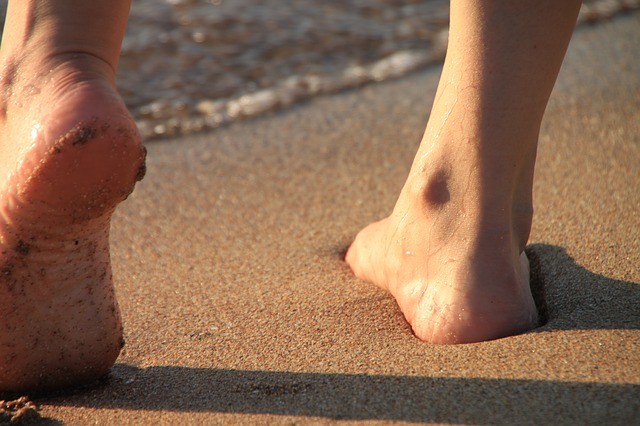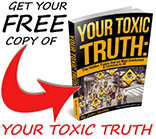Learn the natural remedies for eczema. Check out the article we found over at Everyday Roots.
The “itch-scratch cycle” is about as vicious as they come, and anything that induces it has the full capability to bring almost unbearable discomfort, as those suffering with eczema know well. Eczema is a general term used to describe varying skin conditions that result in inflamed and discolored skin. Typically the skin is red, dry, inflamed, and occasionally blisters or crusts form. The term eczema is often times used interchangeably with the term dermatitis, which literally translates to “inflamed skin.”
There are many types of eczema, but the most common type is atopic eczema. Thought to be hereditary and triggered by allergens, atopic eczema is most common in children, but can reappear during adult years. There is no cure, but figuring out what causes it to flare up and treating the symptoms is usually the course of action to take.
Skin is our body’s first line of defense. Take that away and (let’s pretend we don’t just fall apart) we’re exposed to all sorts of wicked pathogens that would surely take us down-not to mention all the elements. Skin is composed of the epidermis (outer layer) and the dermis (deeper layer.) Remember that old joke “your epidermis is showing?” Anyways, healthy skin and an epidermis you want to flaunt is made up cells that are plump full of water, and full of fats and oils in the skin that help enhance the water-retaining capabilities.
If you have eczema, your skin is most likely producing less fats and oils than it should be, and the ability to retain water is diminished. The space between cells widens since they aren’t plump with moisture, you begin to lose water from the dermis, and irritants and bacteria can enter easier. This is why things like soaps and detergents can worsen eczema, as they strip away what lipids your skin is producing, and it will breakdown faster than healthy skin would to become dry, inflamed, and sometimes cracked or blistered.
These home remedies for eczema will focus on strengthening your skins barrier, filling in those gaps, and retaining moisture, as well as focusing on addressing specific troubles like itching and inflammation.
1. Bring on the coconut oil
Let’s start with the most straightforward and simple eh? Coconut oil does a great job of sinking into the skin and filling in that intercellular space that’s opened up and caused you to lose moisture. It’s a lipid, of course, and fats and oils are what you need to prevent your skin from drying out and becoming more irritated.
You will need…
-Coconut oil
Directions
Rinse your hands with water and pat them dry. Rub the coconut oil onto the affected areas, and let it dry. Apply throughout the day as needed.
2. Go with jojoba
While coconut oil is really fantastic, eczema is a highly individual condition, and not everybody finds success with it. If this is the case, or even if it isn’t, try jojoba oil. It isn’t actually an oil, but a liquid wax. It penetrates the skin deeply, and its molecular structure is the most similar of all the oils to that of our skins natural sebum (oil.) It is composed of long chain fatty acids and fatty alcohols and is incredibly rich and moisturizing. Don’t let the word alcohol scare you away-fatty alcohols are not the least bit harmful to the skin, unlike the drying artificial types such as methanol, isopropyl alcohol, and benzyl alcohol.
You will need…
-Jojoba oil
Directions
Rinse your hands with water and pat them dry. Apply jojoba oil to the affected area, gently massaging it into your skin until it is at least partially absorbed. It is extremely rich and you don’t need a whole lot of it. Apply 3 times daily as needed.
3. Make a soothing butter
When it comes to soothing those dry, itchy, painful patches of skin, nothing can really take the place of a good body butter when it’s needed. This combines 4 fantastic healing ingredients that make a spectacular healing butter-jojoba oil, shea butter, coconut oil, and beeswax. Shea has a high content of non-saponifiable fatty acids, namely stearic and oleic. Non-saponifiable just means it cannot be saponified, or hydrolyzed, and converted to soap. Many of its healing benefits come from these fatty acids and their wonderful ability to repair, heal, and soften damaged skin. It can also help reduce inflammation, which is huge when it comes to eczema. Beeswax is mainly just the medium used to thicken this butter, but it also helps protect and soften skin. Jojoba and coconut oil are good additions for all the reasons listed in the two remedies above!
You will need…
-2 tablespoons shea butter
-2 tablespoons beeswax
-6 tablespoons of coconut oil
-4 tablespoons of jojoba oil
-Lavender essential oil (optional)
-Airtight tins or glass jarsDirections
In a double boiler melt down the beeswax and jojoba completely. Once they are melted add in the coconut oil and stir until it is fully melted. Finally lower the heat a tad and add the shea butter, stirring it as it melts. Shea butter gets added last as it is a little more heat sensitive, and can get grainy further along its shelf life if it’s been over-exposed. Pour the mixture into airtight glass jars and, if using, add a drop or two of lavender essential oil and give it a little stir. Place the cover on and allow it to cool. Apply liberally to affected areas as needed.
Next Article: 10 Amazing Uses Of Aloe Vera That Will Change Your Life
Read full article: 11 Healing Home Remedies for Eczema







Recent Comments